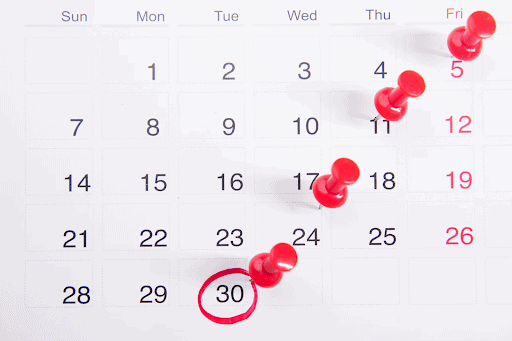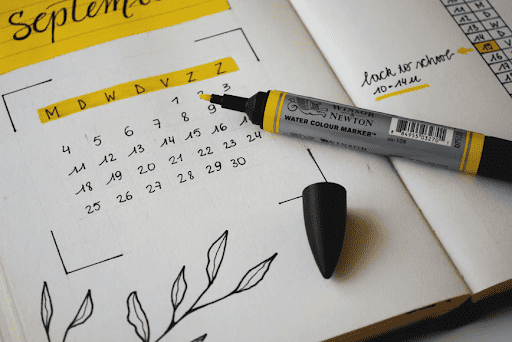Disability seems like a pretty cut and dry term–especially as it applies to earning an income.
Unfortunately, according to the key bureaucratic decision-makers responsible for approving applications, disability is anything but straightforward. It’s actually somewhat of a loaded term.
When you apply for disability income, it’s rarely the seamless process it ought to be.
The Disability Determination Services (DDS) and the Social Security Administration (SSA) have limited resources. They’ve got to be stringent in assessing each applicant because there’s only so much money available. On top of that, these entities are understaffed and underfunded.
While these hurdles can be frustrating, don’t let the above factors disrupt your focus. You can overcome the DDS and SSA-related challenges by taking the correct steps to ensure you receive your due income.
For instance, knowing when to apply for disability income will make an enormous difference in your chances of getting approved. Read on as we discuss this topic further:
The Timeline Of When To Apply For Disability Income

The issue of when to apply for disability income seems simple enough: you need to deliver your paperwork to the SSA the moment you know you’re disabled.
There’s a five-month waiting period for Social Security Disability Insurance (SSDI) benefits. The payments won’t start before your sixth full month of being disabled. SSDI’s waiting period begins a full month after it was decided you became disabled.
An Exception To The Standard Timeline
One exception stands out most regarding the standard payment waiting period when you apply for disability income. Specifically, the need to wait is eliminated when your disability is caused by amyotrophic lateral sclerosis (ALS) as or after July 23, 2020.
Supplemental Security Income (SSI) disability benefits are available for the first full month upon filing your claim. If later, you’ll receive payments once you’re SSI eligible.
Why It’s Vital To Be Prompt With Your Disability Application
When you apply for disability income right away, you’re giving yourself the chance to bridge your financial gap ASAP. Since you’ve lost your primary source of income, you don’t have the luxury of waiting. Your overall quality of life depends on your application being completed and sent to the SSA right away.
Just to paint a picture, the average cost of living in the US per person is $3,189 per month and $38,266 annually. Provided you’re in a family of four, it costs $7,095 per month and $85,139 annually.
Thus, it’s entirely of the essence to ensure you’re earning the most possible income promptly.
Even still, there’s more to the question of “when to apply for disability income.” It’s not only about your timeline–it’s also about not wasting your time.
When Is It Appropriate To Apply For Disability Income?

When we use the term “appropriate,” it’s not in a judgmental way. It can be confusing to apply for disability income. Thinking you should be eligible for benefits when you aren’t is totally understandable and a common occurrence.
For the sake of your own mental health and stress levels, it’s best to know full well whether you should be approved. If it’s apparent that approval isn’t possible, you can save yourself time and frustration. You can also direct your efforts toward finding other sources of income or alternative benefits instead of repeatedly running into a proverbial DDS-built wall.
You Need To Have Worked Long Enough Before You’ve Become Disabled.
Know that you won’t be approved if you haven’t worked a job covered by Social Security.
On top of that, qualifying for disability benefits requires that you’ve worked long and recently enough under SSA rules. That’s one more reason to fill out your application ASAP.
Typically, SSDI benefits are paid monthly to those unable to work and earn income for twelve months-plus due to a disability. Once approved, you’ll receive benefits until you’re back at work more permanently.
In the instance of recovery, additional worker incentives ensure recipients receive benefits and healthcare coverage as they transition back to the workplace.
Here are some other important facts to know about how SSDI benefits work:
- Your work credits are calculated from your yearly wages or income through self-employment.
- It’s possible to earn four credits maximum per year.
- In 2022, you’d earn one credit for every $1,510 earned through employment/self-employment. This number changes every year:
- Upon earning $6,040 in 2022, you’ll earn four credits.
- The number of required work credits to qualify for disability benefits depends on how old you were when you became disabled.
- Most often, 40 credits are needed. 20 credits must be earned 10 years prior to the year you became disabled.
- Provided you’re younger and have become disabled, you’ll likely need fewer credits to qualify for benefits.
You Need To Fall Under The SSA’s And DDS’s “Disabled” Umbrella.
The governing bodies responsible for your application approval have very specific definitions of what it is to be disabled. They might not fall in line with your definition of your disability. This isn’t questioning the validity of your affliction. It’s just how the system works.
Plenty of people who struggle severely don’t necessarily satisfy the rigid scrutiny of the SSA and DDS. Like all systems of its ilk, the disability benefits program has its limitations, and there are blind spots.
Here are the key considerations of what equates to disabled and eligible for SSDI benefits:
Look To The SSA’s List Of Disabilities
You can eliminate plenty of headaches and heartache by looking at the list of disabilities considered severe enough to not be able to work.
We’ll point out that your disability doesn’t have to be on that list to succeed with your application.
However, if your issue isn’t listed, you might want to consider alternatives. For instance, it could be possible to recover if you adhere to a stringent rehabilitation plan. Provided there’s no chance for recovery or to receive alternate income, you can still apply–it will just be more challenging to get approved.
How Severe Is Your Disability?
When you apply for disability income, qualifying under the SSA’s rules requires that you meet the falling stipulations:
- Your medical condition must prevent you from participating or working in any substantial gainful activity (SGA).
- Due to your medical condition, you can’t perform in your previous professional role or adjust to another job.
- Your condition is expected to last or has lasted for a minimum of twelve months. Or it’s expected to lead to death.
You’ll Only Be Approved For SSDI Benefits If You’re “Totally” Disabled.
Getting approved for SSDI payments necessitates being totally disabled. That means you won’t receive benefits for partial or short-term disabilities.
Why is this such a strict definition of disabled?
The assumption of the SSA is that families can access resources during short-term disability-related circumstances. This list of resources includes:
- Workers’ comp
- Insurance
- Investments
- Savings
Who’s Responsible For Approval When You Apply For Disability Income?

You now know the timeline of when to apply. You also know when you’re in a situation that increases the likelihood of approval.
Here, we want to address “who” is responsible for approval so you can further grasp the importance of when to apply for disability income.
Satisfying The Scrutiny Of Disability Examiners
Filings–both in the initial and reconsideration stages–land on the desk of disability examiners, who perform stringent reviews of your case.
Your disability examiner will be employed by state agencies known collectively as the Disability Determination Services. Using their expertise, these individuals decide whether disability claimants are eligible for SSDI payments.
Be mindful that–although not federal employees–disability examiners are still government workers. It’s therefore not shocking to hear that claimants are frequently denied during the initial and reconsideration phases.
You can contact the DDS to speak with your case-assigned examiner. However, it’s considered poor practice to contact the agency directly. Instead, you’re better off getting your disability attorney to contact the DDS for you.
Important Points To Know About The Hearing Stage
Your claim will be reviewed by an Administration Law Judge (ALJ) during the hearing stage. This isn’t a stodgy affair that’ll leave you feeling uncomfortable–it’s typically quite casual, lasting under sixty minutes.
The ALJ looks over the entirety of your Social Security file (aka your exhibit file) throughout the hearing. During this time, the judge might call medical and vocation experts to provide expert testimony. You’ll also be allowed to present new medical evidence not found in your exhibit file.
It’s rare for claimants to be present for the final decision. It’s standard practice to receive a report of your ALJ’s ruling (i.e., Notice of Decision). This document will arrive several months after your hearing.
Pro Tip: Try To Become An Expert In The SSDI Benefits Application Process
“When should you apply for disability income” is a loaded question. After all, knowing when to apply for disability income comes down to multiple factors.
One of those factors is accumulating enough knowledge about the application process to give you the best possible leg up.
On the above note, BenefitsClaims.com exists solely to support and educate people like you who’ve had their lives derailed by disabilities.
Contact us today, and get yourself one step closer to receiving the SSDI payments you deserve.


